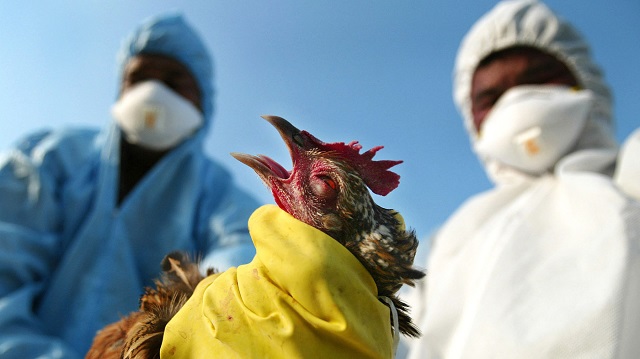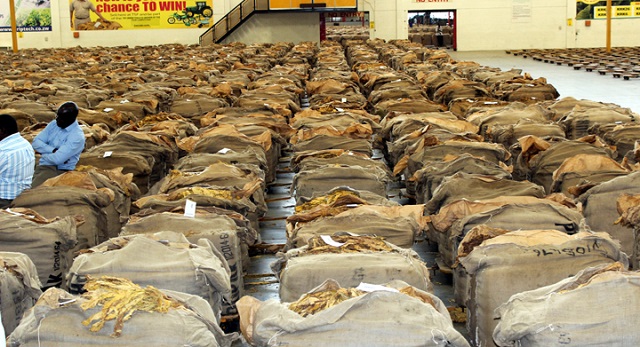EDITORIAL COMMENT: Govt, industry must be commended for overcoming bird flu

Zimbabwe is now bird flu-free, eight months after the disease was detected at a property near Harare.
The country had two outbreaks last year, in May and August, at Lanark Farm that is run by the country’s biggest poultry producer, Irvine’s. About 210 000 birds had to be culled and the property quarantined as the Government and Irvine’s battled to contain the infestation at the property south of Harare and that it does not spread to other farms.
The operation has been successful because there have been no subsequent reports after the May and August ones.
Before January 31 when Zimbabwe became officially bird flu-free, the disease had damaged the economy, particularly because of the fact that it hit the biggest producer in the country. Irvine’s produces the bulk of day-old chicks, table eggs and chicken that is consumed in the country. Thousands of farmers get their supplies of day-old broiler and layer chicks from Irvine’s. Most retailers buy their table eggs from Irvine’s. They also buy the bulk of their chicken from the same producer.
In an industry update for August last year, the Zimbabwe Poultry Association (ZPA), said the culling of broiler parent stocks at Lanark led to a reduction in the availability of broiler day-old chicks by nearly 500 000 per week.
Because of the outbreak, three Southern African Development Community countries — South Africa, Botswana and Mozambique —banned the importation of poultry and related products from Zimbabwe.
These factors highlight that the impact of the infestation was far much wider than Irvine’s but sector-wide. And the impact in dollars and cents is huge.
Department of Livestock and Veterinary Services principal, Dr Unesu Ushewokunze-Obatolu, said on Monday:
“Effective January 31, 2018, this notice serves as an official declaration of the end of the avian influenza that hit our country over the period May to August 2017.
“Operations at Irvine’s Private Limited are now reverting to normal. The Department of Livestock and Veterinary Services and all stakeholders remain on high alert as the global status of avian influenza or bird flu remains unpredictable. The public is required to cooperate with veterinary import controls to limit introduction of avian influenza from other territories.”
The agriculture sector must be encouraged by this development and must be looking forward to a recovery of this important sub-sector as soon as possible.
To help in this direction, the Government, in August last year agreed to a six-month waiver of import duty on fertilised eggs.
Six breeders were allowed to import the hatching eggs in terms of that waiver — Irvine’s Zimbabwe (432 000 ring fenced fertilised poultry eggs per week), Supa Chicks (160 000), Chinyika Chicks (100 000), Dr Henn (90 000), Zim Avian (40 000) and All Avian (30 000).
But, as Dr Ushewokunze-Obatolu said the industry must continue to be on alert.
Farmers should be on the look out all the time, checking on the condition of their birds for possible symptoms of sickness. This means that they should have strong early warning systems, to be able to detect an infestation early on so that they are able to take corrective action before it causes more damage.
Farmers are encouraged to put in place mechanisms that limit the risk of an outbreak, that is to say improving their bio-security systems at their properties. Interaction must be minimised between their flocks and migratory birds — the culprits that carry the bird flu virus and transmit it to their domesticated, more fragile cousins. Farmers’ chicken houses must be physically secure to prevent any incursions by wild birds or their birds straying out and picking the virus outside.
Chicken feed, water and utensils have to be always away from outside contact.
Bio-security measures also mean limiting visits to their chicken houses by people other than their workers. A farmer has no reason to open up their fowl runs — which are their businesses by the way — to unnecessary visits even if the visitors are their friends, relatives or business colleagues. Chicken runs must be restricted zones and every farmer has to know and practise that if he has to protect his flock from possible transmission of diseases like bird flu to his farm.
If any visits are to be permitted, visitors should wash their hands and shoes and change clothes when they enter the chicken houses. This is important because it is possible for visitors to carry the virus to the property they are visiting, causing an infestation.
We realise that the duty waiver on hatching eggs expired on January 31, the same day when the country became bird-flu free. We note that when the Government suspended the import tax in August, farmers suggested that six months was too short to lay a strong foundation for a viable recovery.
We agree with them, thus urge the Government to consider extending the period by a further three months. Nine months should be long enough for farmers to build their stocks for a turnaround we all need for this key sector of the economy.











Comments